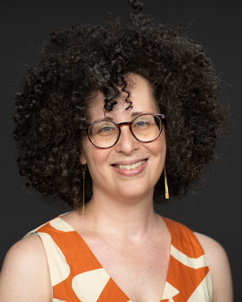INFO Directory

Availability to Accept New PhD Students:
This faculty member is NOT currently accepting Ph.D. studentsVictoria Van Hyning
Assistant Professorvvh@umd.edu
Hornbake South 4105 A
https://vanhyningvictoria.com/
BIO
Victoria Van Hyning is an Assistant Professor of Library Innovation. She joined INFO in 2020. She has a background in medieval and early modern English literature, digital humanities, citizen science and cultural heritage crowdsourcing, and publishes in these areas. She is a co-founder and Director of the Center for Archival Futures (CAFe) where she focuses on community cultural heritage, crowdsourcing, and data reuse. She is a founding member of and a member of the Maryland Initiative for Digital Accessibility (MIDA) She was awarded an Institute of Museum and Library Services Early Career Grant in 2022 for her project “Crowdsourced Data: Accuracy, Accessibility, Authority (CDAAA),” to investigate the sociotechnical barriers that libraries, archives, and museums (LAMs) face in integrating crowdsourced transcriptions into their discovery systems, and whether transcriptions increase accessibility for people who are blind or low vision and use assistive technology to access web content.
Victoria previously worked at the Library of Congress on the By the People project (2018-2020), and held a British Academy Postdoctoral Fellowship in English literature at Oxford University, where she also served as the Humanities PI of the crowdsourcing platform Zooniverse.org (2015-2018). Van Hyning’s teaching and research interests focus on giving more oxygen to marginalized voices and people, whether in the historical record—such as religious minorities, women, and Black artists—or people alive today. She is a Project Manager and co-author of the new American Library Association Standards for Library Services for the Incarcerated or Detained. Her teaching focuses on accessibility, cultural heritage materials and systems, and crowdsourcing. She is a member of the editorial board for the Journal for Open Humanities Data (JOHD).
Associated Research Centers
Research & Focus Areas
- Accessibility and Inclusive Design
- Digital Humanities
- Human-Computer Interaction
- Library and Information Science